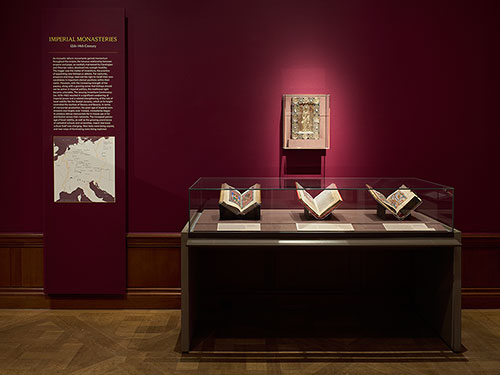12th–14th Century
As monastic reform movements gained momentum throughout the empire, the tenuous relationship between emperor and pope, so carefully maintained by Carolingian and Ottonian rulers, devolved into outright hostility. The trigger was the matter of investiture, the practice of appointing new bishops or abbots. For centuries, emperors and kings reserved the right to install their own candidates in important clerical positions within their realm. However, with the increasing strength of the papacy, along with a growing sense that bishops should not be active in imperial politics, this traditional right became untenable. The ensuing Investiture Controversy (ca. 1076–1122) resulted in a significant weakening of imperial power and a related strengthening of the role of local nobility like the Guelph dynasty, which at its height controlled the duchies of Saxony and Bavaria. In terms of manuscript production, the great age of imperial commissions was largely over. Instead, monasteries began to produce deluxe manuscripts for in-house use or for distribution across their networks. The increased patronage of local nobility, as well as the growing prominence of cathedral schools and universities, meant that book culture itself was changing. New texts were being copied, and new ways of illuminating were being explored.

